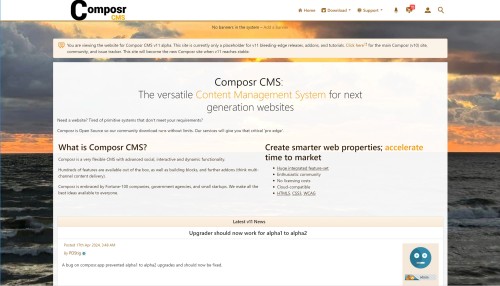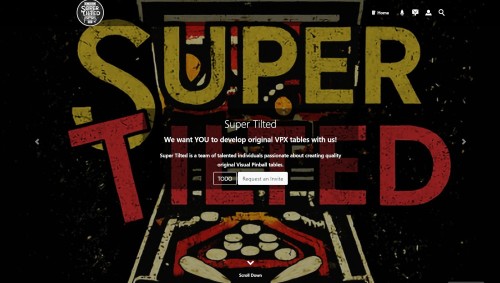Featured Sites: A-Z Index
H
Newest 10 Entries
| Question | How do I set the correct file permissions for Composr? |
|---|---|
| Answer | If you're using the quick installer, it will handle file permissions automatically. On a suEXEC-style server, default permissions (744 for directories and 644 for files) are usually sufficient. However, _config.php should have 600 permissions for security. Without suEXEC, specific directories (e.g., caches, uploads) and files (e.g., _config.php) require 777 (full access) or 666 (read/write) permissions. The fixperms.php script can automate this process on Linux and Windows. |
| Question | How do I install Composr on Linux? |
|---|---|
| Answer | After ensuring your web host meets the requirements and you have a database ready, you can install Composr on Linux using the following steps:
|
| Question | What are the prerequisites for installing Composr? |
|---|---|
| Answer | Before installing Composr, ensure your web host meets the minimum requirements. Familiarize yourself with your web host's control panel (e.g., Plesk, cPanel), which you'll use to manage databases, subdomains, and other settings. Gather your SFTP/FTP credentials (hostname, username, password), usually emailed upon signup. Set up a MySQL database and note its details: hostname (often 'localhost'), username, password, and database name. Ensure the database user has full read/write/administer access to the database. |
| Question | What tools are available for debugging Composr code? |
|---|---|
| Answer | Composr offers a code quality checker addon that helps identify various types of errors, including parser errors, run-time errors, and logical errors. This tool can significantly reduce debugging time and enhance code reliability. It is available through the testing_platform addon. |
| Question | What are some key coding standards in Composr? |
|---|---|
| Answer | Composr emphasizes clean, well-structured code with a focus on readability and maintainability. Key standards include proper indentation, consistent use of comments, and clear function headers with type definitions. Remember: beautiful code leads to better functionality and collaboration! |
| Question | Where can I find resources for learning PHP programming? |
|---|---|
| Answer | While Composr documentation doesn't cover basic PHP, resources like the official PHP documentation ( |
| Question | What is the purpose of the Code Editor? |
|---|---|
| Answer | The Code Editor is a web-based tool for editing Composr code files directly on the server. It requires password authentication and automatically manages overrides within _custom directories. To access it, go to yourbaseurl/code_editor.php. |
| Question | How can I export and import custom addons? |
|---|---|
| Answer | Composr allows exporting addons as TAR files, containing all necessary files and an addon.inf file for metadata. You can import these addons to share and reuse them across different Composr installations. To do this, make your necessary files for the addon in the Composr installation, and then go under Admin Zone > Structure > Addons > Export addon. You can select the relevant files for the addon, provide information about the addon, and then download the TAR file (which can then be imported on other Composr sites). |
| Question | Can you give an example of creating a new module? |
|---|---|
| Answer | Imagine creating a "Testing" module to manage collaborative testing:
|
| Question | What are the different ways to extend Composr functionality? |
|---|---|
| Answer | You can extend Composr through:
|
Top 10 Entries
| Question | What is the purpose of "confirmed" and "non-confirmed" sessions? |
|---|---|
| Answer | Composr distinguishes between confirmed and non-confirmed sessions for added security:
You can configure zones to require confirmed sessions, preventing access from cookie-based logins alone. The Admin Zone uses this by default. |
| Question | How can I enhance the security of my Composr installation on shared hosting? |
|---|---|
| Answer | Shared hosting environments can be inherently less secure. Here are some tips:
|
| Question | How does Composr protect against Cross-Site Scripting (XSS) attacks? |
|---|---|
| Answer | Composr utilizes multiple layers of defense against XSS attacks:
|
| Question | What are the different types of security alerts in Composr? |
|---|---|
| Answer | Composr has a variety of hack-attack codenames that trigger security alerts and logging. Some common examples include:
You can customize alert handling for each type in data_custom/xml_config/advanced_banning.xml (Admin Zone > Security > Configure advanced banning). |
| Question | What are some tips for secure website maintenance? |
|---|---|
| Answer |
|
| Question | What are the main security features of Composr? |
|---|---|
| Answer | Composr has a robust set of security features to protect your website, including: Passwords:
Login Restrictions:
Auditing Systems:
Framework Security:
Other features:
|
| Question | Why are my searches slow, and how can I improve search speed? |
|---|---|
| Answer | Slow searches can occur when dealing with large amounts of content. Here are some workarounds and solutions:
|
| Question | How does the search engine handle different languages? |
|---|---|
| Answer | Composr's fast custom index supports multiple languages. Content is indexed based on its translated version, ensuring that you get relevant results even when searching in a different language. |
| Question | What are quoted phrases and how do they work? |
|---|---|
| Answer | Quoted phrases allow you to search for an exact sequence of words. For example, searching for "red apple" will only return results containing that exact phrase. Keep in mind that enabling quoted phrases can increase disk space usage. |
| Question | How do stop words affect search results? |
|---|---|
| Answer | Stop words are common words (like "the", "a", "is") that are ignored by the search engine because they add noise and don't contribute to the meaning of the search query. You can customize the list of stop words for the fast custom index. See the search tutorial for more information. |








